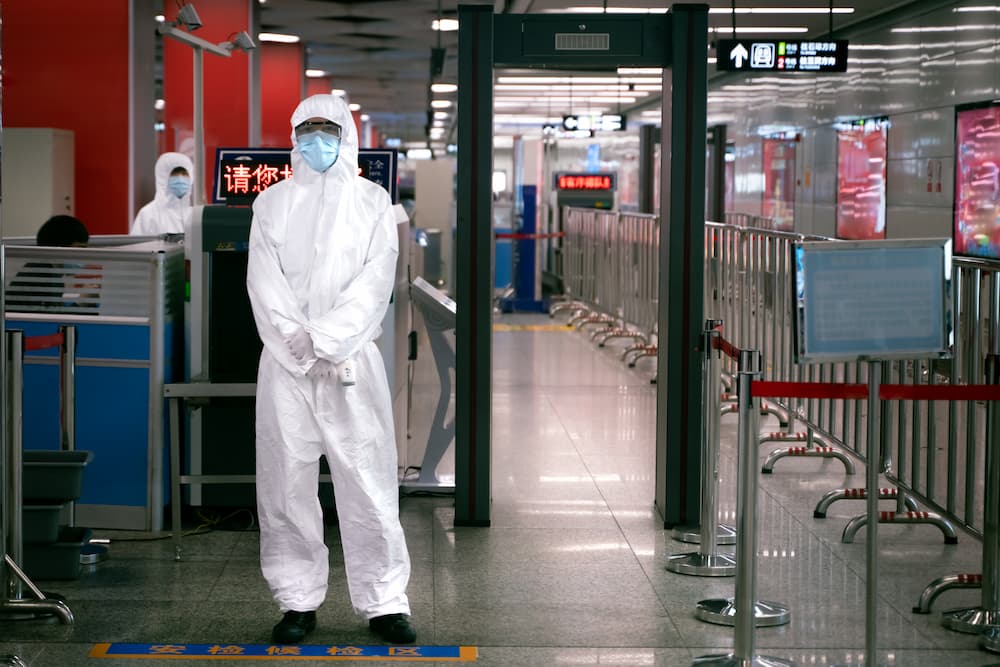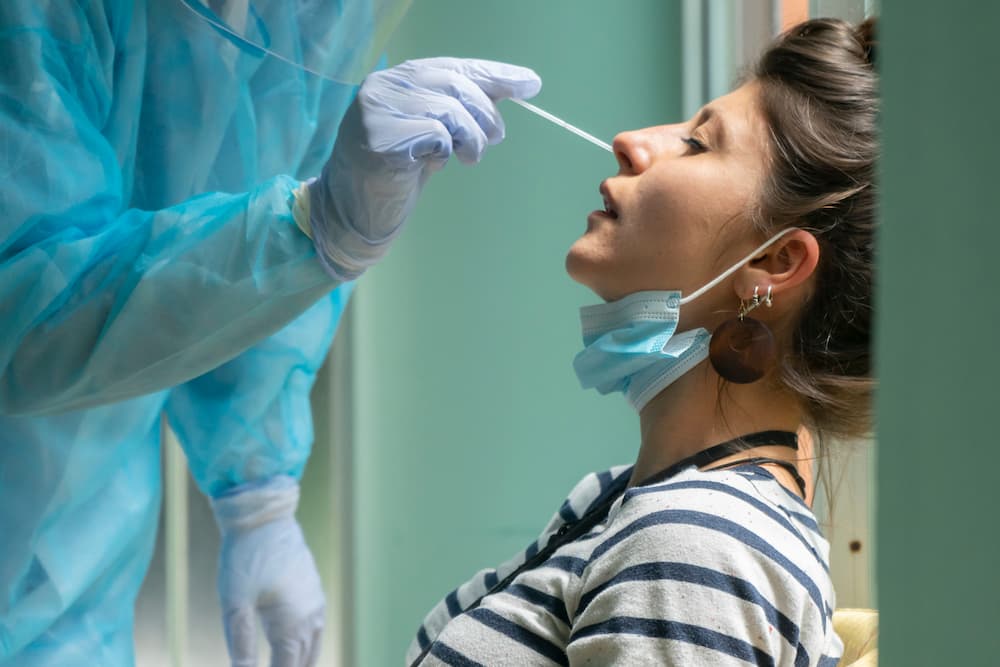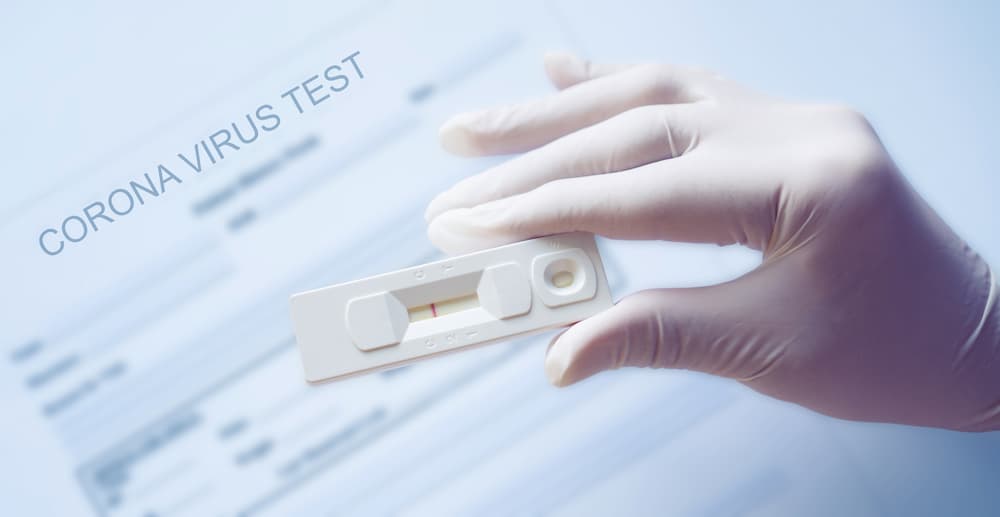Spain is on the list of many countries that have lifted the strict Covid restrictions. As such, you don’t need proof of vaccination or a negative Covid-19 test to be allowed into the country. Even so, border and airport officials are on the lookout for anyone with symptoms.
With that in mind, any traveler with Covid-19 symptoms must undergo testing by a quarantine officer. Unfortunately, the testing procedure is unpredictable and might lead to significant delays in your travel plans,
If you recently had contact with an infected person, symptoms can show up anytime, even on international soil. As such, it is recommendable to undertake a Covid test if you’ve international travel lined up.
More importantly, consider visiting a reputable and trusted urgent care center for a comprehensive Covid-19 test at an affordable rate.
Here’s what you need to know.
Do You Need a COVID Test to Fly to Spain?
Effective June 24, 2021, Spain added the United States to the list of countries whose residents do not need proof of vaccination or a negative Covid test to travel into Spain. These guidelines also apply to tourists or travelers transiting to other countries.
Current Travel Restrictions for Spain
Spain lifted all Covid-related border restrictions. Travelers or tourists do not need to be vaccinated or show proof of a negative Covid test done in the last three days. It is therefore open for travelers from all countries and regions.
Requirements to Enter Spain from the U.S.
- Covid-19 requirements: There is no Covid-19-related requirement for U.S. citizens to enter Spain.
- Enter through an authorized border-crossing point
- Present a corresponding visa if required
- Present a valid passport and travel document
- Provide evidence of meeting conditions of staying and holding sufficient financial resources.
Requirements for Returning to the U.S. from Spain
- You don’t need proof of vaccination for U.S citizens returning from Spain
- You don’t need a negative Covid-test to enter the U.S from Spain
- Non-immigrant or non-citizen air passengers are not required to show proof of vaccination with an acceptable Covid vaccine to board a plane into the United States.
Symptoms of COVID-19
People with Covid-19 experience varying symptoms ranging from mild to severe. Covid-19 symptoms appear 2-14 days after exposure or contact with an infected person. The window after exposure and the appearance of symptoms is called incubation.
Unfortunately, infected persons can spread the Covid-19 virus before the symptoms appear—presymptomatic transmission.
Some people experienced worsening symptoms such as shortness of breath or pneumonia a week after contracting Covid-19. In other cases, patients experience symptoms weeks and months after getting Covid, a health condition known as post-Covid.
Here’s a list of Covid-19 symptoms:
- Sore throat
- Runny nose and congestion
- Fatigue
- Headache
- Difficulty in breathing and shortness of breath
- A new and continuous cough, with at least three coughing episodes in the last 24 hours or persistent coughing that lasts over an hour
- Loss of appetite
- Muscle or body aches
- Nausea and Vomiting
- Diarrhea
When to Seek Immediate Medical Attention
You should see a doctor if you have had contact with someone diagnosed with Covid-19. A physician will mostly request you to get tested and prescribe medication to help you recover.
If you have the following emergency symptoms, seek immediate medical attention:
- Troubled breathing
- A new confusion
- Pale, gray, or blue-colored skin, nails, or lips— depending on your skin tone
- Constant pain or pressure in your chest
How is Covid-19 Spread from Person to Person
- The virus is transmitted in respiratory droplets released when an infected person coughs, talks, sings or breathes near you. If you inhale these droplets, you’re likely to be infected.
- Alternatively, you can get Covid-19 from close contact—touching or shaking hands— with an infected person, then touching your hands.
Total Cases
As of August 9, 2023, Spain had recorded 13,980,340 confirmed cases with 121,852 deaths. On a positive note, Spain recorded zero new cases in the last 7 days in the first week of August.
In addition, Spain has administered 112,837 406 vaccine doses.
According to the latest CDC update, Covid indicators, including hospitalization, test positivity, emergency department visits, and wastewater levels, are increasing nationally. Even so, individual and community actions tied to hospitalization are currently low in more than 99% of the country(United States).
What Will Happen if I Test Positive for Covid-19?
If the test returns a positive outcome, it means the virus was detected in your body, and you have or recently had an infection.
Here’s what you need to do after testing positive for Covid-19:
- Isolate and take precautions, including wearing a high-quality mask or respirator to protect those around you from getting an infection.
- Tell those you recently had contact with that they may be exposed
- Monitor your symptoms; if you notice emergency symptoms, seek immediate medical attention
- Visit an urgent care center about treatment options available to you— treatment is most effective if you commence it a few days after experiencing symptoms.
Diagnosing Covid-19
Covid-19 is diagnosed with a laboratory test—a healthcare provider collects a saliva sample or a swab on your nose or throat and sends it to the lab for testing.
Here are the different types of Covid-19 tests:
Molecular Test
A molecular test determines whether a patient has a current infection with the SARS-CoV-2 virus.
It is also referred to as follows:
- Nucleic Acid Amplification Test(NAAT)
- Reverse Transcription Polymerase Chain Reaction(RT-PCR) Test
- Reverse Transcription loop-mediated isothermal Amplification (RT-LAMP) Test
The PCR test is usually regarded as the ‘’gold’ standard of testing Covid-19 because of its high accuracy rate, according to a study conducted by Cochrane COVID-19 Diagnostic Test Accuracy Group, a molecular test that diagnosed Covid-19 95.1% instances correctly.
Due to the high-accuracy rate in molecular tests, a positive Covid result is reliable to confirm an infection if you have symptoms. However, sample collection, transport, and processing errors can cause a false negative.
In addition, the following timing issues can cause a false negative outcome on a molecular test:
- Testing Too Early: It takes up to 5 days for the virus’s genetic material to build up enough levels to be recognized by the test. You may therefore get a false negative if you test before the five-day window lapses.
- Testing Too Late: The viral genetic material in the upper respiratory tract begins to decline after the first week of illness. Therefore, you shouldn’t wait too long to perform the test to avoid a false negative result.
When can you expect results?
The time to get results for a molecular test varies— you can get as early as 15-45 minutes for a few point-of-care tests. On the contrary, receiving the test results may take 1-3 days if a physician sends the samples to an external lab.
You can perform a molecular test in many locations, including:
- Urgent care centers
- Health Clinic
- Hospitals
- Pharmacies
- Community-based testing sites
Antigen Test
Similar to a molecular test, an antigen test is used to determine a current Covid-19 infection. Antigen or rapid or at-home tests produce results within 15-30 minutes. According to a Cochran 2021 study, antigen tests correctly identified Covid 72 percent and 58 people for people with and without symptoms, respectively.
The low accuracy explains why a negative test cannot rule out an infection, and a molecular test is required to confirm the result. An antigen test cannot rule out an infection, especially for people displaying symptoms.
Even so, a positive antigen outcome is highly accurate and reliable.
If you plan to use an antigen test, you need multiple tests to rule out an infection.
Here are the FDA guidelines on antigen tests:
- If you have symptoms and your antigen test is negative, take another antigen test after 48 hours or a PCR test as soon as you can
- If you don’t have symptoms and your antigen test is negative, take another antigen test after 48 hours or take a PCR test as soon as possible.
- If you don’t have symptoms and your antigen test is negative, wait another 48 hours and take a third test.
Antibody Tests
An antibody test is a serology test that detects antibodies your body produces to fight the SARS-CoV-2 virus that causes Covid-19. A healthcare provider may therefore conduct an antibody test to determine whether you had a previous Covid-19 infection.
An antibody test can detect antibodies from a previous Covid-infection or vaccination. Although an antigen test can determine a previous infection, it can’t assess your level of immunity.
More importantly, an antibody test does not detect a current infection because the body takes up to three weeks after infection to develop antibodies. Public health officials use antibody tests to determine the level of exposure within communities.
When can you expect results:
You can get results on the same day for some point-of-care facilities. However, if the results are sent to the lab for analysis, it may take 1-3 days to receive your results.
When to Get Tested
You may need a viral test which includes an antigen or molecular test, to detect if you have a current Covid-19 infection.
The Centers for Disease Control and Prevention(CDC) recommends the following scenarios as the ideal time to test for a Covid-19 infection:
- If you have symptoms of Covid-19, consider testing regardless of your vaccination status.
- International Travel: Although most countries, including Spain, lifted the testing requirement three days before travel, a Covid test helps you make informed choices before the journey.
- Exposure: Undertake a test if you were exposed to someone currently infected with Covid-19. Close contact means being within 6 feet for 15 minutes or more within 24 hours. However, individuals who have no symptoms and are fully vaccinated are exempted. In addition, people who tested positive and recovered in the past 90 days are also exempted.
- You should also consider testing if you’re often in a crowded or poorly ventilated space or attended a massive event or gathering.
How to Keep Yourself From Getting Covid
You may take several steps to lower the risk of getting infected and spreading the virus to others.
Here are a few guidelines as recommended by World Health Organization and CDC:
- Take a vaccine shot. Vaccination is the best defense against Covid-19; vaccines significantly reduce the risk of getting and spreading Covid-19.
- Wash your hands at least 20 seconds before and after eating food, after using the bathroom, after wiping your nose, and after coming in contact with someone with a cold.
- Avoid attending large gatherings or staying in indoor spaces with poor air ventilation.
- Wear a well-fitting and comfortable face mask in indoor public spaces in areas with many infections.
- Clean and disinfect high-touch, frequently touched surfaces such as door knobs, light switches, countertops, and electronics.
- Avoid close contact with someone who is sick or has symptoms
- Stay away from large crowds if you’re vulnerable to infections or live with someone with low immunity
- Avoid sharing dishes, glasses, towels, and bedding with members of your household if you’re infected.
- Cover your mouth and nose with a tissue or elbow when you cough or sneeze. Then, safely dispose of the tissue and wash your hands right away.
Checklist and Resources for International Travelers
Ensure you have all the travel documents before starting your journey into Spain. Ensure to leave a copy of your documents with a friend or relative. In addition, keep another copy of your identification documents within your luggage but separate from the originals.
Vital Resources
Government of Spain: Conditions for Entry into Spain
Covid-19 International Travel Advisory
CDC Traveller’s Health Guide
U.S Department of State: Travelers Checklist
Try Newport Urgent Care COVID Test for International Travel
If you develop symptoms at the border point en route to Spain, you’ll likely experience significant delays and self-quarantine. The unexpected delay will disrupt the travel itinerary, which may lead to the cancellation of important business meetings or quality time with family or friends.
With that in mind, it is advisable to undertake a Covid-19 test a couple of days before travel so you’re sure of your status in advance.
Newport Urgent Care & Occupational Medicine has a fully equipped laboratory and qualified physicians who offer comprehensive Covid-19 testing services.
Contact us online or call us at call us at 949.752.6300 to book an appointment.







